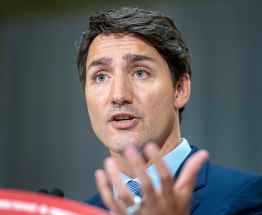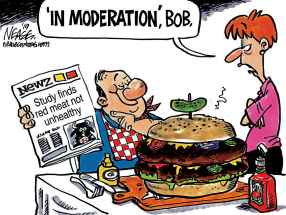Fate of Liberals’ push for official status in Tory hands
Read this article for free:
or
Already have an account? Log in here »
To continue reading, please subscribe:
Monthly Digital Subscription
$0 for the first 4 weeks*
- Enjoy unlimited reading on winnipegfreepress.com
- Read the E-Edition, our digital replica newspaper
- Access News Break, our award-winning app
- Play interactive puzzles
*No charge for 4 weeks then price increases to the regular rate of $19.00 plus GST every four weeks. Offer available to new and qualified returning subscribers only. Cancel any time.
Monthly Digital Subscription
$4.75/week*
- Enjoy unlimited reading on winnipegfreepress.com
- Read the E-Edition, our digital replica newspaper
- Access News Break, our award-winning app
- Play interactive puzzles
*Billed as $19 plus GST every four weeks. Cancel any time.
To continue reading, please subscribe:
Add Free Press access to your Brandon Sun subscription for only an additional
$1 for the first 4 weeks*
*Your next subscription payment will increase by $1.00 and you will be charged $16.99 plus GST for four weeks. After four weeks, your payment will increase to $23.99 plus GST every four weeks.
Read unlimited articles for free today:
or
Already have an account? Log in here »
Hey there, time traveller!
This article was published 02/10/2019 (2263 days ago), so information in it may no longer be current.
To be, or not to be, an official party, that is the question the Liberals have posed in the Manitoba legislature.
On Wednesday, the Liberals announced plans to introduce private member’s legislation to modernize a nearly century-old rule that requires provincial political parties to have won at least four seats to be considered “official.”
Official status affords additional caucus resources, including money for support staff and more space within the legislative building. It also guarantees a party gets to participate in question period; MLAs that belong to an unofficial party currently need the unanimous consent of the legislature to ask a question.
In support of their goal, the Liberals pointed out there is no national standard for official party status in Canada.

Manitoba requires four seats in a 57-seat legislature (seven per cent). Elsewhere, the threshold ranges from two of 61 seats in Saskatchewan (3.3 per cent) to four of 87 seats in Alberta (4.6 per cent) to two of 51 seats in Nova Scotia (3.9 per cent).
In the House of Commons in Ottawa, official party status is attained with 12 of 383 seats, or 3.1 per cent of the total MPs in the federal legislature.
The Manitoba Liberals contend such status should be linked, in part, to popular vote. In September’s provincial general election, the Grits earned 15 per cent of the popular vote, but only three seats. By way of contrast, the NDP got more than 31 per cent of the vote — roughly double the Liberals, but took 18 seats in the legislature.
Liberal Leader Dougald Lamont will propose via private member’s legislation that official status require a party to obtain at least four seats — or two seats, with at least 10 per cent of the popular vote.
The effort to change the definition is obviously self-serving. It is much harder for a party to gain traction with the electorate if it is starved of legislative resources and forced to beg for time in question period. However, with most governing parties afraid to tackle real electoral reform, the Liberal proposal is both reasonable and timely.
The first-past-the-post electoral system is perverse in the way it divorces popular vote from legislative representation. Rare attempts made in Canada to transition to some form of proportional representation have been miserable failures.
Rare attempts made in Canada to transition to some form of proportional representation have been miserable failures.
So, in lieu of seismic systemic change to the electoral system, what can Canadians do to boost the overall fairness of elections and ensure parties and candidates who receive significant support are not left on the sidelines?
Adjusting the threshold for official party status is one thing. So, too, are measures to ensure there is adequate public support for political parties and candidates to mount legitimate electoral challenges.
Lamentably, ensuring the fairness of elections, results and legislative representation are not priorities for most governing parties.
To the victor go the spoils and, more importantly, control over the rules and mechanisms that define the Canadian system of democracy. Legislation governing things such as election timing, pre-writ advertising, public support for parties and candidates and — yes — official party status are at the mercy of the governing party with a majority mandate.
Tory Premier Brian Pallister used his first-term majority to eliminate a per-vote subsidy for political parties, while maintaining rebates to individuals who donate to a political party.
It was a no-brainer for an established party like the Progressive Conservatives, which has no trouble getting individuals to write cheques. For new and less established parties, or those that cater to issues of greater importance for lower-income Manitobans, it was little more than an attempt to tilt the playing field.
Expect more partisan manipulation when it comes time to consider the Liberal proposal on official party status, and not just from the Tories. The NDP was skeptical of the proposal, with NDP MLA Nahanni Fontaine chiding the Liberals for being unable to elect the requisite number of members to qualify.
Of course, the NDP position is heavily influenced by the fact the two parties often battle for the same voters in seat-rich Winnipeg. Why give the Liberals help, when that help would ultimately make it harder for the NDP?
However, it’s important to note the Tory majority gives Pallister the final say on this issue. If he wants to level the playing field, and acknowledge the nearly 68,000 Manitobans who voted for the Liberals — either to advance democratic principles, or perhaps to snooker the NDP — he can make it happen.
Pallister was non-committal Wednesday, promising to study the issue.
The Liberals, and the Manitobans who voted for them, have earned the right to be formally acknowledged in the legislature. One can only hope the other two parties can put aside self-interest long enough to see the value of their proposal.
dan.lett@freepress.mb.ca

Born and raised in and around Toronto, Dan Lett came to Winnipeg in 1986, less than a year out of journalism school with a lifelong dream to be a newspaper reporter.
Our newsroom depends on a growing audience of readers to power our journalism. If you are not a paid reader, please consider becoming a subscriber.
Our newsroom depends on its audience of readers to power our journalism. Thank you for your support.










